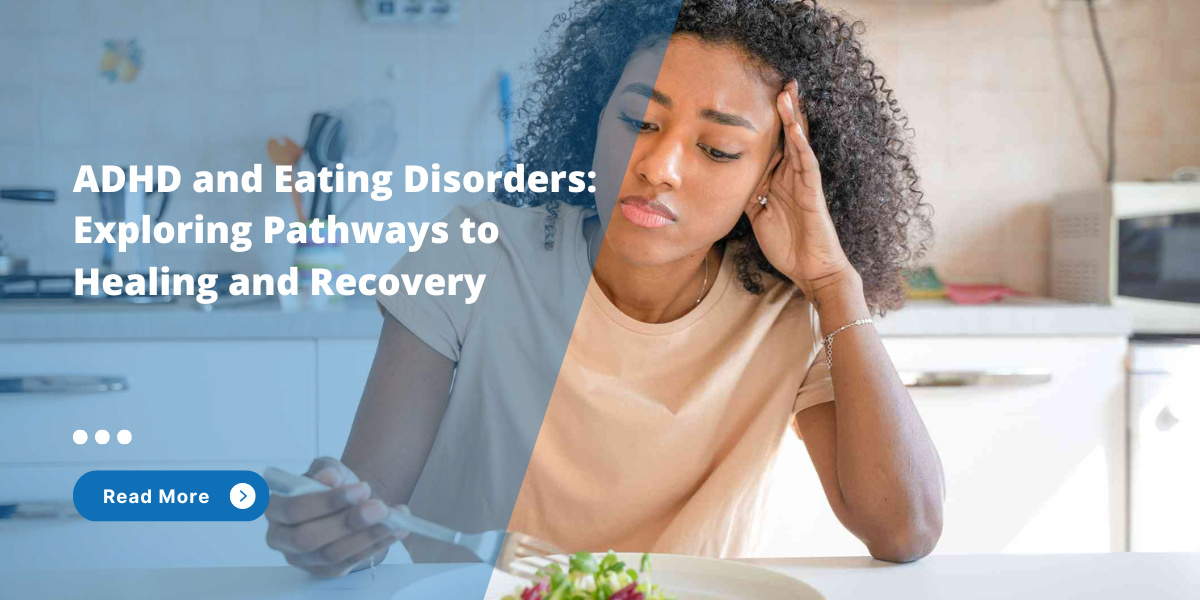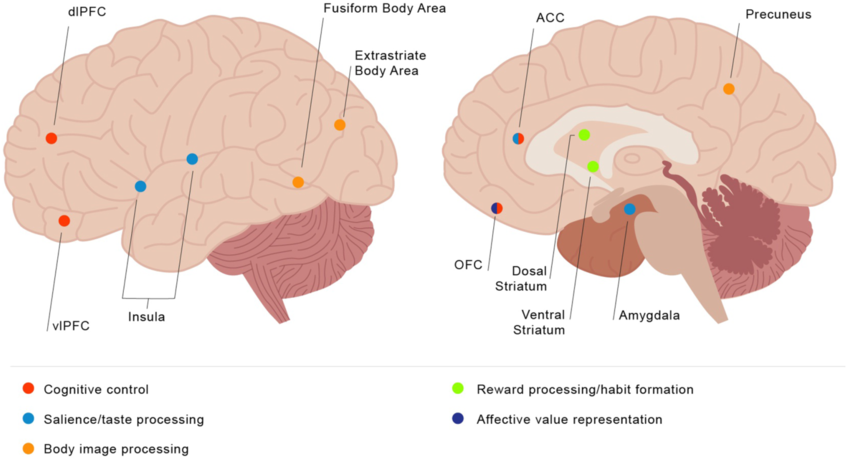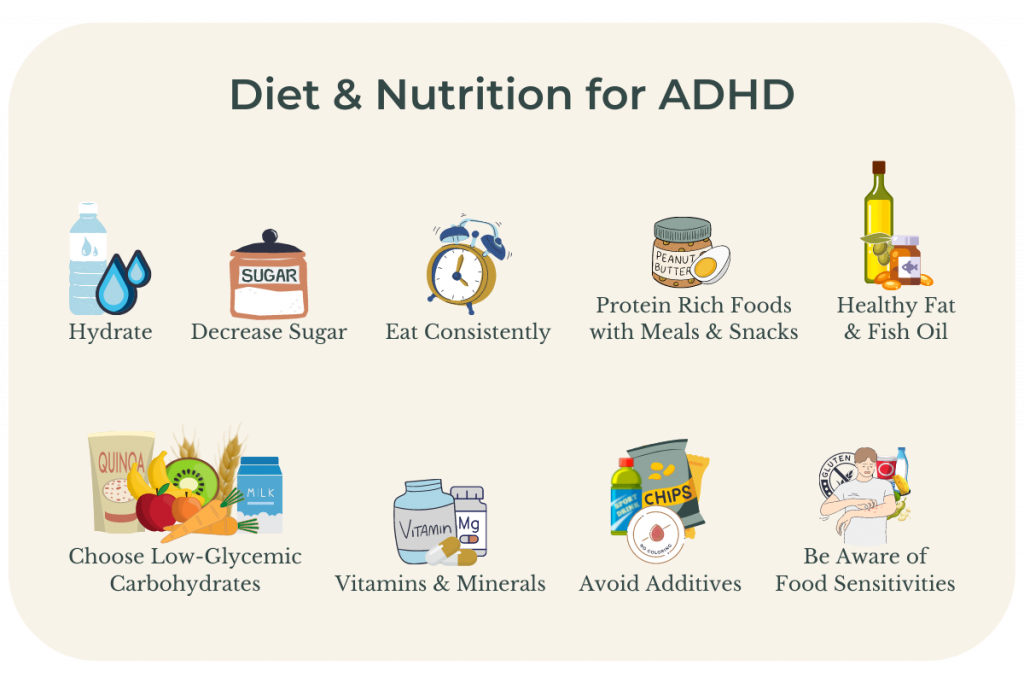How Telehealth is Revolutionizing Autism Care in New Jersey Telehealth medicine is quickly becoming one of the best options Modern...
Continue Reading
Both ADHD and eating disorders (anorexia, bulimia, or binge-eating) are multifactorial illnesses that can have drastic negative physical and psychological effects on a person. When additive conditions exist, it introduces new barriers that must be overcome through unique care paradigms. The present part seeks to explain topics that have not yet found their place in literature, such as nutrition, the connections between them, and how to effectively combine their treatment and address the fact that recovery is possible.
Some etiological and behavioral and some neurological features allow one to understand the fact that they can coexist together which as the facts of ADHD and other eating disorders. Some of them include impulsivity, having difficulty regulating emotions, and having a dysfunctional reward circuit in the brain.
Due to the impulsiveness which is one of the defining traits of ADHD, it is common to engage in disordered eating practices whereby an individual may binge eat or skip meals without any forethought. Likewise, ADHDer’s emotional dysregulation can also make them consume food in order to cope with excessive emotions. Furthermore, since the dopamine system of an ADHD sufferer is often hypofunctional, these individuals may tend to get quickly pleased with food which makes their eating behaviours even more difficult to manage.

It is also important to highlight the fact that nutrition directly influences the aggravation of the Continuing ADHD disorders or symptoms and often supports the recovery process. This explains the reason behind the importance of dietary intake – in order for the brain to perform optimally, it must also receive the right vitamins and minerals. But it should be noted that eating disorder behaviours can actually lead to malnourishment which can worsen ADHD symptoms such as inability to focus, mood fluctuations or tiredness.
Challenges with attention or focus.
There are certain nutrition aspects that have been proven to assist in controlling ADHD like:
Nutritional deficiencies of omega-3 fatty acids, iron, zinc, etc. can lead to cognitive dysfunction, thereby further complicating ADHD management. Through dietetic strategies customized to an individual’s needs, malnourishment can be reversed leading to improved attention, good mood and emotional regulation all paving way for healing from both conditions.

Among drugs that help manage ADHD, stimulants are the most common since they enhance focus and reduce impulsiveness. However, in some instances, the use of stimulants can become a double edge sword in patients with eating disorders.
It’s no surprise that the most champions are stimulants, the very least of which doesn’t have the appetite crippling effect, certainly leads to more restrictive eating patterns. The management of medications while meeting a patient’s nutritional needs is multifaceted and requires great integration of services. Likewise, the use of non-stimulant strategies or moderated doses remain key considerations in achieving both ADHD and ED management.
Integrated Treatment Plans for ADHD and Eating Disorders: The Best Approaches
ADHD and eating disorders warrant an integrated multidisciplinary approach. Thus, the skills of a psychotherapist, a nutritionist and a physician should be combined as one for evaluation and preparation of a comprehensive plan.
Cognitive and Dialectical Behavioral Therapies are behavioral therapies that have been useful in dealing with these conditions. CBT assists patients in recognizing negative thought processes linked with disordered eating and other problems associated with ADHD. DBT addresses emotional regulation which is an essential factor in the treatment of both conditions.
Yes, recovery is possible but in most cases patients will require breaking the cycle of negative behavior and thought that is causing harm. Introduced changes such as consistent routines, practicing mindfulness, daily goal-setting would help bring about the required shift most desired.
Deep breathing and meditation, as mindfulness strategies, can help grow awareness of emotions and physical feelings of hunger, thus supporting healthy eating patterns. More realistic expectations through incremental reward are helpful in motivating goals during recovery.
In order to prevent the need for drastic measures, such as intervening in a physical manner, early warning signs must be picked early. Specifically, these include abnormal eating behavior, mood swings, and attention or obsession with food or the human body. Others can help reduce the strong emotional triggers in these behaviors, such as an Anxiety Therapist NJ.
How stress contributes and aggravates these states:
Stress, a frequent cause of both ADHD and disordered eating behaviors, is usually a causative factor of many disorders due to the degree of frustration. CALP stress results in rapid and extreme behaviors including EA and behavioral restriction. In maintaining the recovery, stress management such as physical activity, enough sleep, and relaxation are also key components.
When ADHD and eating disorders are present, family support remains critical in the recovery process of the patient. Family orientation and engaging the family in the treatment activities,
Psychological Intervention of the Family Members of Patients can be conducted by providing structured mealtimes, limiting household stressor influences and actively participating therapy. Their role does not only strengthen the treatment objectives but makes the people feel less alienated in the path to recovery.
Cognitive and Behavioral approaches, for example, the use of Cognitive Behavioural Therapy (CBT) remain critical mechanisms for the management of the condition of ADHD coupled with the eating disorder. Cognitive Behavioral Therapy refers to a therapeutic approach that emphasizes the importance of self-awareness in wrongdoing by the individual.
Behavioral strategies, such as journaling, meal tracking, and regular therapy sessions, can help build a structure for recovery maintenance. The adoption of these techniques fosters resilience allowing one to overcome obstacles and strive towards their aspirations.
Living with ADHD and eating disorders is a work in progress that takes time, patience, and lots of support. One of the critical components of retaining any advances made is resilience. At times this may involve having a healthy and positive self-image, having healthy relationships and support, and undergoing therapy or counseling.
A well rounded approach that includes nutritional therapy, active management of drugs, and behavioral modification is the basic recipe to ultimate recovery and healing. Eating Disorder Therapist NJ can target the specific issues affecting the individual’s life enabling them to work towards enjoying a full and meaningful life.
Both ADHD and eating disorders form a link and present particular problems. Still, knowing how they are related and how to tackle them all at once may bring relief and recovery. It may also be helpful to use practices like How to Meditate for Anxiety: Techniques and Tips as they allow people to control emotional dysregulation and stress as well. With good nutrition, proper therapies, and the right surroundings, patients will be able to refrain from the bouts of impulsivity and distorted eating pattern and lead a life which is fully balanced and healthy.
How Telehealth is Revolutionizing Autism Care in New Jersey Telehealth medicine is quickly becoming one of the best options Modern...
Continue ReadingUnderstanding and Managing Emotions with Message-Centered Therapy Emotions are the brain’s way of analyzing our social environment, and they have...
Continue Reading5 Benefits of Online Depression Therapy While both in-person and online counseling can be very effective for relationship counseling, depression,...
Continue ReadingRequest an Appointment
(201) 497-0289


Copyright © 2024 | All Rights Reserved | Created By Invisio Solutions Ltd